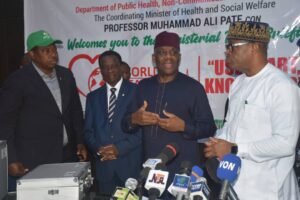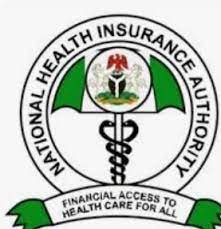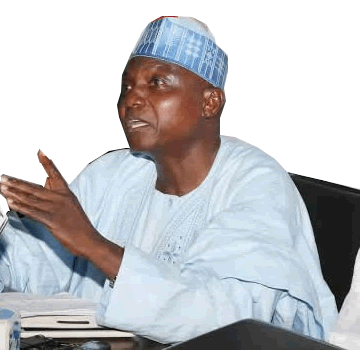Health
World Heart Day: FG unveils cardiac emergency response devices

The Federal Government on Friday unveiled the Cardiac Emergency Response Box otherwise known as Automated External Defibrillators (AEDs) to respond to heart emergencies such as cardiac arrest.
The Coordinating Minister of Health and Social Welfare, Prof. Ali Pate, inaugurated the three devices in Abuja in commemoration of the 2023 World Heart Day.
The theme for the celebration is “Use Heart, Know Heart”.
The News Agency of Nigeria (NAN) reports that the day is set aside by the Cardiovascular Health Community all over the world to raise awareness about the importance of the heart and promote preventive measures to reduce the global impact and burden of heart diseases.
Pate who was represented by the Minister of State, Dr Tunji Alausa, said that the boxes which were donated by the Nigerian Heart Foundation (NHF) would be deployed at appropriate designated high population areas such as airports.
According to him, AEDs are portable, life-saving medical devices used to revive sudden heart arrest.
Pate said that the heart is one of the vital organs of the body and the engine room responsible for pumping life-sustaining blood to all parts of the body.
He added that the heart needs to be protected against diseases and conditions that would cause it to malfunction.
“Statistics from the World Health Organisation (WHO), shows that Cardiovascular Diseases (CVDs) are the leading Non-Communicable Diseases (NCDs) and are the foremost cause of death globally, taking an estimated 17.9 million lives each year.
“Of these cardiovascular deaths, 85 per cent are due to heart attack and stroke, and over three-quarters occur in low- and middle-income countries.
“The 2018 WHO NCDs Country Profiles show that NCDs accounted for 29 per cent of all deaths in Nigeria with CVDs responsible for 11 per cent of all the NCD deaths.
“The country profile also shows that the risk of dying prematurely from NCDs in Nigeria is 22 per cent.
“Premature mortality in this instance is defined as death occurring between ages 30 and 70 years from any of the common NCDs”, he said.
The minister said that although the FMOH is currently in the field conducting National Steps Survey of NCDs, several pockets of studies in Nigeria report various incidence and prevalence of CVDs such as hypertension at prevalence greater than 30 per cent.
He put stroke incidences at 25.9 per 100,000 persons per year between 2000 and 2015; coronary heart disease prevalence at 0.7 per cent and rheumatic heart disease, which is a disease of the socio-economically disadvantaged at 27 per 1,000 children.
Pate also noted that the morbidity and mortality due to CVDs in Nigeria is underestimated because of inadequate awareness and health seeking behaviours as well as limited screening, diagnostic and therapeutic services including poor data repository.
“Given the silent and chronic nature of majority of the CVDs, it is important to institute long-lasting measures to prevent, detect and manage them early in order to avert complications such as heart attack, heart failure, stroke and even death.
“Luckily, the risk factors for heart diseases are well known and largely preventable.
“For example, hypertension, diabetes mellitus, sickle cell disease, lipid abnormalities, overweight and obesity, tobacco use, alcohol intake and insufficient physical activity are significant modifiable and preventable risk factors for heart disease and other NCDs.”
He, however, said that in response to the burden of CVDs, the federal government over the years instituted several strategic interventions at the Tertiary, Secondary and Primary Health Care (PHC) levels.
They include the development of the National NCDs Policy and Multi-Sectoral Action Plan, an offshoot to the Policy and Multi-Sectoral Action Plan 2019-2025.
Also, the National Tobacco Control Act 2015 and Regulations 2019 which are being implemented to reduce tobacco consumption and exposure to second-hand smoke in Nigeria.
“In collaboration with NAFDAC, the Fats and Oil Regulations has been reviewed and gazetted to incorporate Trans-Fatty Acid (TFA). This regulation prescribes TFA at less than two grams (g) per 100g of oil or fat as a start of our transition to a total elimination of TFA by 2030.
“In recognition of the key role of Primary Health Care in the prevention and early detection of diseases, the ministry in collaboration with the National Primary Health Care Development Agency (NPHCDA), WHO Country Office, and Resolve to Save Lives (RTSL), inaugurated the National Hypertension Control Initiative (NHCI) in August 2019.
“This was with focus on strengthening the PHC Centers to prevent and manage simple and uncomplicated hypertension using a simple standard treatment protocol. The protocol was first deployed to PHC Centers in November 2020.”
Pate added that through the NHCI, the simplified hypertension treatment protocol is currently used in a total of 104 PHC centers across Kano and Ogun States.
Similarly, the Protocol is also implemented at 60 PHC Centers in the FCT by the University of Abuja Cardiovascular Research Group, while an additional 360 PHC Centers across 18 States are using the same protocol under the Healthy Heart Africa Programme in collaboration with the NPHCDA, Population Services International (PSI) and AstraZeneca.
He, however, advised Nigerians to adopt a healthy lifestyle always to make their heart age longer and healthier.
These activities include engagement in physical activity for a minimum of 30 minutes daily, avoidance of tobacco use and exposure to second-hand smoke and avoidance of harmful intake of alcohol.
He also enjoined Nigerians to eat a healthy diet containing a minimum of three to five servings of a variety of fresh fruits and vegetables spread over each day.
“In addition, eat a variety of whole grains, lean meat, fish, peas, beans, and lentils.
“Limit processed foods, limit salt intake to less than five grams daily, reduce dietary cholesterol, and avoid industrially produced trans-fats.
“Know your numbers by regularly checking your blood pressure, cholesterol, and glucose levels”, he added.
The Executive Director, NHF, Dr Kingsley Akinroye, while speaking about the AEDs, said that they are sophisticated, lightweight, portable, yet easy -to-use medical devices that can analyse the heart’s rhythm and send electric pulses to a person’s heart.
Also it helps to restore a normal heartbeat and could be used at hospitals, homes, schools and in public places.
“AEDs are the only way to restore a normal heartbeat when someone is experiencing a cardiac arrest.
“To help someone who is in cardiac arrest survive, a defibrillator needs to be found as quickly as possible.
“Subsequently, NHF will promote the message, advocate for the inclusion of these boxes as an essential package for prevention of deaths resulting from sudden cardiac arrest in public institutions and privately owned organisations such as airports, banks, offices, malls, sports centers, gyms and schools.”
Health
TB: Nigeria’ exceeded WHO’s targets by 15% despite covid-19 – Experts

By Laide Akinboade, Abuja
The National Coordinator of the African Coalition on Tuberculosis in Nigeria, Ibrahim Umoru, recently said despite Coronavirus (Covid-19) challenges, Nigeria was able to exceed World Health Organisation, WHO’s by 15%.
Umoru stated this at the community sessions of the just concluded National TB conference in Abuja, where delegates from over 20 countries shared their country-specific experiences on TB elimination.
He emphasized the need for resources and commitment, as exemplified during the COVID-19 pandemic in achieving the goal of ending TB by 2030 in Nigeria.
He therefore urged for broader collaboration, political will and realignment of priorities, Umoru explained if well meaning corporations and individuals prioritized and champion TB cause like other causes, the end of TB fight is imminent.
According to Umoru, “With the right diagnostics, resources, and support, we can achieve the 2030 goal,” he said.
Similarly, Deborah Ike, the Executive Director of the Debriche Health Development Centre (DHDC), highlighting the challenges being confronting Nigeria in the fight against TB stress the need to break all barriers in order to meet the 2030 target for TB eradication.
Ike noted that a lot more needs to be done in the areas of education and awareness as stigmatization and discrimination remain major barriers.
“Even though testing and treatment are free in Nigeria, many still die because they’re afraid to access these services.
“Some people avoid seeking treatment because they fear being judged.
“Others have lost jobs due to TB, which not only worsens their economic situation but can also lead to further psychological and physical decline.”
Ike emphasized the critical need for effective information dissemination to combat stigma, adding that it is important for people to understand that a person on treatment can no longer spread the disease, unlike one who has refused to be treated.
“This knowledge will reduce fear, encourage treatment, and help cut the chain of transmission”.
A Director for Tuberculosis at Breakthrough Action Nigeria, Dr Bolatito Aiyedigba, highlighted some of the innovations used to increase case detection such as the Check Am slogan, to encourage community people to test their lingering coughs.
”Some of the innovations were introduced during the COVID-19 era, COVID came with cough and cough is usually associated with tuberculosis as well. So it could be tuberculosis. Not every cough is due to COVID, so check it.
”Cough is due to different kinds of illnesses. And until you check, you will not know. And we also worked with the national TB hotline, when they call, they are directed on what to do, asked more questions and their fears are allayed, so they can get the appropriate testing. So that really, really helped. In addition to all the other innovations that came into the facility, testing was also improved.”
Aiyedigba also informed that the stigmatisation of people living with TB is still very high in Nigeria, noting that the country needs to tackle the menace.
”This is the next line of action that we’re going to tackle. Because now we’re fighting the TB cases, we’re putting them on treatment but we have to address the issue of stigma.
”And the stigma starts from self-stigmatisation, there’s no need to stigmatise yourself for having tuberculosis because tuberculosis is curable and treatable.
National TB Conference is an annual event organisedthe Stop TB Partnership Nigeria. The 2024 edition , themed “Public-Private Partnership and Integrated Service Delivery: Panacea to End TB in Nigeria,” was organised by the Stop TB Partnership Nigeria in collaboration with the Federal Ministry of Health and Social Welfare.
The three day event brought together Representatives from Stop TB Partnership Geneva, public health experts, community and civil organisations, private and public stakeholders from across the world, amongst many others.
Health
Malnutrition: 40% children are stunted in 2023 – FG

By Laide Akinboade, Abuja
The Federal Government, FG, at the weekend revealed that about 40% of the 35 million under 5 children in Nigeria are stunted in 2023.Director and Head of Nutrition Department, Federal Ministry of Health and Social Welfare, Ladidi Bako-Aiyegbusi, revealed this at the 8 annual conference, organized by the Association of Nigeria Health Journalists, ANHeJ, in Abuja.
She said 8% are wasted, 27% are under weight, and 29% are Successfully breastfed, SBF. The theme for the two day conference was, ‘SWAP effectiveness in addressing poor health outcomes: The role of the media’.According to her, ” Globally, Nigeria is raved 2 and 1 in Africa in the number of children suffering from Severe Acute Malnutrition, SAM. Furthermore, research shows that, 31% of women consumed Iron and folic acid (IFA) supplements during pregnancy and out of the 35 million children under 5 years of age population, 14 million children are stunted while 3 million are wasted. “Out of 7 million children born per year in Nigeria 42% are breastfed within an hour of birth. 29% exclusively breastfed upto 6 months of age . 3% breastfed upto 23 months of age. 23% receive diverse diet (minimum 5 groups). 11% receive minimally acceptable diet . 26% vitamin A supplementation coverage” .Bako-Aiyegbusi, who enumerated the causes of malnutrition in Nigeria which include, inadequate food intake, lack of dietary.diversity , and infectious diseases. On what the federal government is doing, she said the government has done the revised National policy on food and nutrition in Nigeria which provide an overarching framework for multisectorial action, to reduce malnutrition in the country. Earlier, the FG also reiterated its commitment to accessible health policies and services that are geared towards achieving improved health outcomes in Nigeria.The Permanent Secretary, Federal Ministry of Health and Social Welfare, Daju Kachollom, who was represented by Dr. Angis Ikpe, of the policy and planning department of the Ministry, explained that in order to achieve improved health outcomes in the country, the Ministry have embraced the Sector-Wide Approach (SWAp) strategy to unify the efforts of thegovernment, partners, and stakeholders, maximizing impact, enhancingaccountability, and eliminating redundancies.According to Kachollom, the Nigeria Health Sector Renewal Investment Initiative (HSRIl) exemplifies the government unwavering commitment to revitalizing the health sector “Through targetedinvestments, we aim to strengthen primary healthcare (PHC) systems to deliver efficient maternal and child health services, tackle Neglected Tropical Diseases (NTDS), address Non-Communicable Diseases (NCDs), and confront infectiousdiseases. “These efforts also include a robust, ongoing response to HIV/AIDS andTuberculosis and Malaria.In the field of Maternal and Child Health, we remain unwavering in our commitmentto enhance service delivery and improve health outcomes.”The strengthening ofovision Primary Healthcare (PHC) systems, bolstered by the Basic Healthcare Provision Fund (BHCPF), has significantly increased access to vital services in underserved communities. Notably, the Maternal and Newborn Mortality Reduction InnovationInitiative (MAMII) exemplifies these efforts by offering free cesarean sections to eligible women, thereby improving maternal and neonatal outcomes.”The Permanent Secretary also commended the invaluablecontributions of health journalists in shaping public perception and holding stakeholders accountable, reaffirmed the government’s commitment to working hand-in- hand with the media in promoting health awareness, countering misinformation, andensuring transparency and accountability within the health sector.The Chief Executive Officer of the Institute of Human Virology Nigeria (IHVN), Dr Patrick Dakum, in his good will message commended ANHEJ’s consistency in sustaining the forum for the press and stakeholders in the health sector together, deliberate on pertinent issues, and forge a way forward for better health in Nigeria. Dakum noted that the theme of the conference is apt, as the importance of collaboration in strengthening health systems can not be overemphasized. He further said the IHVN remains committed to aligning its activities with the Government of Nigeria’s health sector plans. Recognising other roles of the media, such as holding the government accountable to its people and encouraging better domestic funding for health programs and research, commended ANHEJ for the initiative in ensuring that the health needs of all Nigerians are met. The President of ANHEJ, Mr Joseph Kadiri, earlier in welcome address, said theme of the conference is aimed at addressing the numerous challenges confronting Nigeria’s health sector, such as inadequate funding, inefficient resource allocation, and poor service delivery. “As journalists, we play a vital role in promoting health awareness, education, and advocacy. Through our reporting, we can hold stakeholders accountable for their actions and policies, provide a platform for marginalized voices to be heard, promote evidence-based health information and best practices, and advocate for policy changes and increased funding for health programs.”He noted that despite the media’s potential to enhance SWAp effectiveness, several challenges persist, including limited access to health information and data, inadequate training and capacity building for health journalists, and insufficient funding for health reporting and programming. The President further reiterates ANHEJ’s interest in supporting the federal government and development partners in the amplification of their activities through its health promotion reportage and programmes.Health
Nigeria Exceeds 2024 Health Insurance Target, Hits 95% of 2027 Goal – DG NHIA

The National Health Insurance Authority (NHIA) says 19.2 million citizens have enrolled into health insurance scheme surpassing its 2024 target
Dr Kelechi Ohiri, Director-General, NHIA, disclosed this in Abuja, at a Universal Health Coverage (UHC ), day commemoration roundtable to reflect on Nigeria’s UHC quest, identify challenges, and chart a course of action.
The roundtable was part of the activities lined up for the commemoration of the 2024 UHC Day
It was to reflect on Nigeria’s UHC quest, identify challenges, and chart a course of action.
Ohiri said this feat was a significant milestone in NHIA’s efforts to expand access to healthcare for Nigerians under health insurance scheme.
According to him, this achievement surpasses the 2024 target and places the nation at 95 per cent of its ambitious 2027 presidential coverage goal.
He attributed the success to strategic policy reforms, effective collaborations with stakeholders, and an unwavering commitment to universal health coverage (UHC)
“We are proud to announce that 19.2 million Nigerians have been covered by health insurance.
“This surpasses our 2024 target and places us within striking distance of achieving 95 per cent of the 2027 presidential target,” he said.
He said that the NHIA had worked tirelessly to implement innovative strategies.
“This include the expansion of the Basic Healthcare Provision Fund (BHCPF) and partnerships with state health insurance agencies to ensure affordable and accessible healthcare for all Nigerians, especially the most vulnerable populations,” he said.
According to him, the milestone reflects the Federal Government’s commitment to delivering quality healthcare as outlined in the National Health Act.
He urged state governments and private sector stakeholders to intensify efforts aimed at sustaining the momentum and bridging the remaining gaps in health insurance coverage.
He said that the achievement came amid ongoing challenges in Nigeria’s healthcare sector, including funding limitations, infrastructure deficits, and inadequate human resources
However, the NHIA boss expressed optimism, noting that the agency’s strategic roadmap for 2025–2027 includes scaling up digital enrollment processes and integrating informal sector workers into the insurance scheme.
“With the theme of this year’s UHC Day, health should reflect the type of government the country has and must make decisions that represent its aspirations.
“We should prioritise Primary Health Care,(PHC), as the bedrock of our health system,” he said.
Dr Muhammad Lawal, the Commissioner for Health, Yobe, said that UHC was a reality and we must work towards it.
Lawal said that there should be no negotiation for the health of the people, most especially the vulnerable segment of the population.
Dr Bolanle Olusola-Faleye of the USAID LHSS Project, said that it was a remarkable time to celebrate 2024 UHC Day with the presence of reforms such as the Sector Wide Approach (SWAP).
Olusola-Faleye said that SWAp had shown evidence of success in the states through the harmonised Annual Operational Plan (AOP), ensuring alignment of priorities.
Public health advocates have lauded the progress, describing it as a significant step toward achieving UHC in Nigeria.
Dr Garfa Alawode, Co-convener of the UHC2023 Forum, said that it was a commendable accomplishment.
Alawode, however, said that there was still more to do to ensure that every Nigerian can access affordable and quality healthcare services.
As Nigeria inches closer to its 2027 health insurance target, Alawode called for sustained political will, increased funding, and effective monitoring.
“This is to ensure that the gains are not only maintained but also translated into improved health outcomes for all citizens ” he said.
NAN recalls that UHC Day is a global advocacy day to raise awareness about the importance of equitable, affordable, and accessible healthcare for all individuals without financial hardship.(NAN)



















